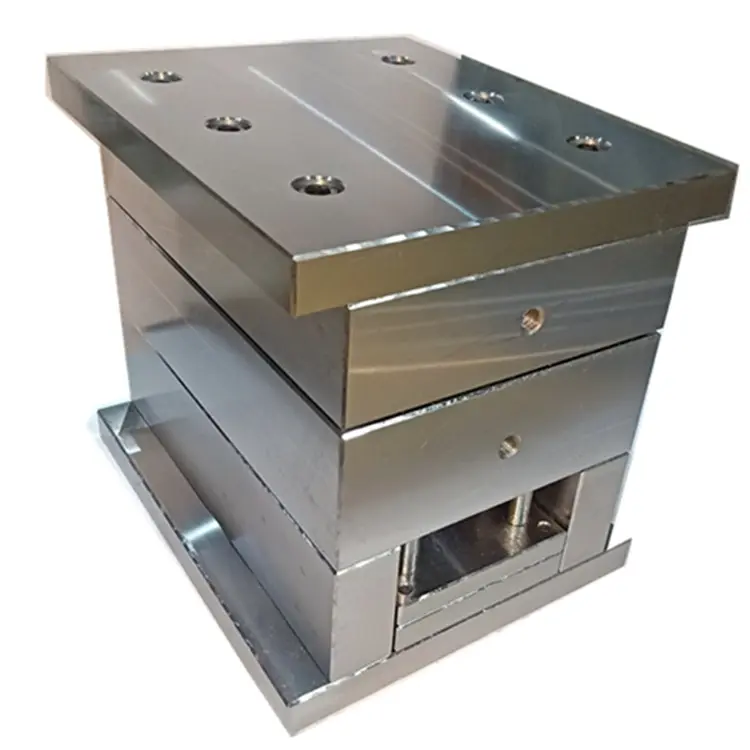Introduction to Tool Steel Plates
Tool steel plates are specialized types of steel that are known for their hardness, resistance to abrasion, and ability to maintain shape at elevated temperatures. These features make them essential for various industrial applications, particularly in manufacturing and engineering sectors. In Saudi Arabia, where industrial advancement has gained momentum, the demand for durable materials like tool steel plates is on the rise. This article explores the key benefits of tool steel plates and their applications in industrial settings across the kingdom.
Types of Tool Steel Plates
Tool steel can be divided into several categories, each tailored for specific applications. Here are some of the main types:
- Cold Work Tool Steel: Known for its resistance to wear and deformation, commonly used in cutting tools and dies.
- Hot Work Tool Steel: Designed for high-temperature applications, ideal for forging and die casting.
- High-Speed Steel: Maintains hardness at elevated temperatures, widely used in drill bits and milling cutters.
- Plastic Mould Steel: Used for creating molds and dies for plastic parts.
Durability and Longevity
One of the most significant advantages of tool steel plates is their incredible durability. The composition of tool steels typically includes a high percentage of carbon along with alloys like chromium, tungsten, and molybdenum, elevating their hardness levels. This makes tool steel plates highly resistant to wear and tear, thereby providing a longer service life compared to conventional steels. In industries where machinery operates continuously, such as mining and manufacturing, the longevity of tool steel components translates to reduced downtime and less frequent replacements, contributing to efficiency and cost-effectiveness.
High-Temperature Resistance
In many industrial applications, tools and components are subjected to extreme heat. Tool steel plates exhibit excellent high-temperature resistance, allowing them to retain their mechanical properties and structural integrity even in demanding environments. This characteristic is particularly beneficial in Saudi Arabia's industrial landscape, where high temperatures can occur during processes like metal machining and forging. Choosing tool steel plates ensures that equipment remains functional and reliable, minimizing failures during crucial operations.
Cost-Effectiveness Over Time
While the initial investment in tool steel plates may be higher compared to other materials, their long-term benefits greatly outweigh the costs. The durability and reduced maintenance expenses associated with tool steel result in lower total cost of ownership. Companies in Saudi Arabia can achieve significant savings by using tool steel plates in their operations, as they do not require frequent replacements and can withstand harsh operational conditions.
Versatility in Applications
Tool steel plates are versatile and can be utilized across various industries. In Saudi Arabia, they find applications in:
- Manufacturing: Used to create tools such as punches, dies, and cutting instruments.
- Aerospace: Critical for components that demand high strength and precision under stress.
- Automotive: Used in the production of durable parts that require high wear resistance.
- Oil and Gas: Essential for tools and equipment that operate in sour and corrosive environments.
The adaptability of tool steel plates allows them to meet specific industry requirements, thereby enhancing productivity and performance.
Enhanced Machinability
Another considerable advantage of tool steel plates is their ability to be machined into complex shapes and designs. Although they are harder than standard steels, advancements in machining techniques have allowed for effective processing of tool steel materials. In Saudi Arabian industries where precision is key, tool steel plates can be effectively shaped to meet stringent tolerances while maintaining their properties. This enhanced machinability fosters innovation and design flexibility, enabling manufacturers to create custom solutions that cater to unique operational challenges.
Environmental Considerations
As the world shifts towards sustainable industrial practices, the choice of materials becomes crucial. Tool steel plates, being long-lasting and reducing waste through fewer replacements, align with green manufacturing initiatives. By investing in durable materials, industries in Saudi Arabia can contribute to a significant reduction in their overall environmental footprint. Moreover, responsible sourcing and recycling of tool steel can further enhance its sustainability profile, making it a suitable choice for eco-conscious businesses.
Conclusion
In conclusion, tool steel plates offer a myriad of benefits crucial for driving industrial applications in Saudi Arabia. Their durability, high-temperature resistance, cost-effectiveness, versatility, enhanced machinability, and sustainability make them an invaluable asset for manufacturers and engineers. As Saudi Arabia continues to evolve its industrial strategies in line with Vision 2030, investing in advanced materials like tool steel plates will play a pivotal role in shaping a robust and efficient industrial sector, ready to face the challenges of the future.

